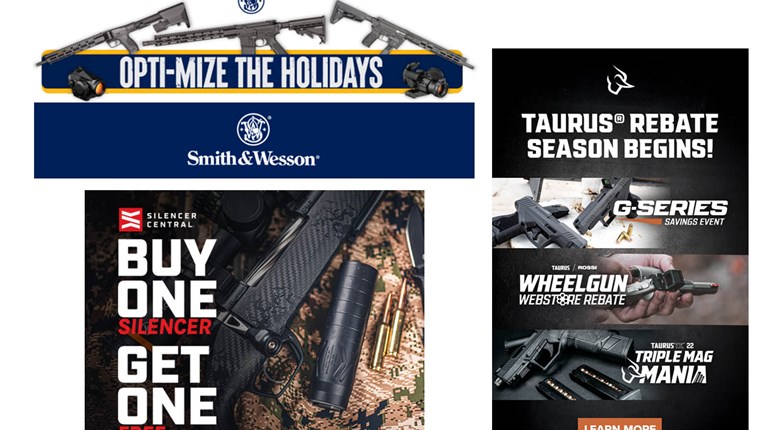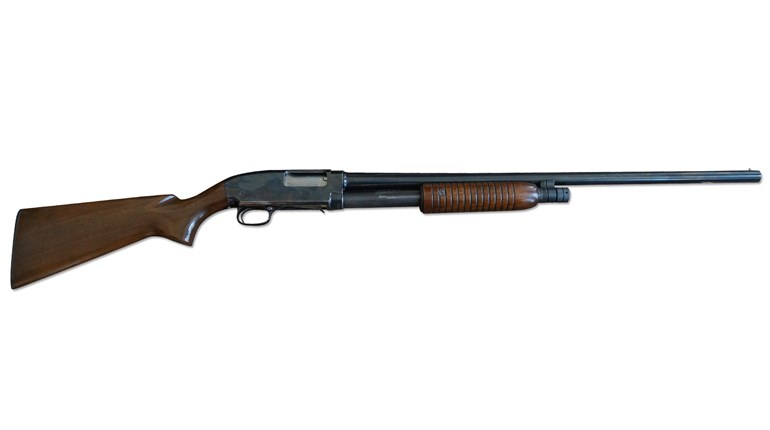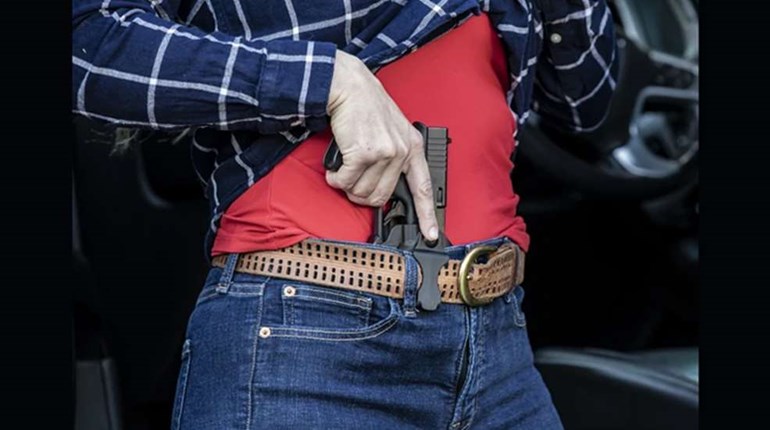
We pity the well-intentioned gift-giver this time of year. If you have dedicated shooters on your list, you’ve no doubt discovered they fall into only two categories—really, really picky, and worse than that.
In their defense, picky—to a certain extent—pays. Not much imagination is needed to see the practical side of such attention to detail: Matching tastes to requirements is serious business when it comes to firearms. That said, it’s also true that your shooter mate, friend, child, father/mother, etc., will likely appreciate few things more than a well-chosen accessory that they might not buy for themselves. So temporarily, at least, we step out of purely carry-oriented considerations and make a few recommendations for those increasingly desperate shoppers with a shooter on their “nice” list.

Patriot Products Combat Optic Tool™ – These lunch-priced masterpieces are “gotta haves,” we think, for every shooter—and especially for MSR/AR platform types. A stainless, one-ounce tool that will easily, discretely fit in a watch pocket, the three versions have absolutely splendid versatility for a huge variety of optics-related tasks.
For starters, the Combat Optic Tool™ has a box wrench that will work with both English 3/8” LaRue Tactical mounts and metric 10 mm Aimpoint mounts (which covers EOTech, Trijicon ACOG, ADM, GDI and many others as well). Windage and elevation adjustments on all Aimpoint, EOTech, Elcan, and Trijicon ACOGs and RMRs are pretty much ding- and fumble-free now, too.
A 1/4” hexagon hole allows the tool to be used as a T-handle wrench for Torx, hex and screwdriver bits (no wallowed-out approximation, this: It’s “snugger” than several drivers we have, yet doesn’t lock up so you can’t get it apart). As if that weren’t enough, the tool drops right in to Magpul MIAD & MOE grips, BCM Gunfighter Grips, and TangoDown BattleGrips storage compartments.
That’s the basic tool, and perhaps all most folks need. But the Optimized™ and CSAT versions add a 1/2” open-end wrench, and the CSAT a punch for A1/A2, Troy, and similar iron sight adjustments.
Finally, as Patriot so helpfully points out, “It’s an emergency life-saving device because it can open your favorite beverage when you are dying of thirst.” We leave you to suss out the real meaning here.

NANOPROTECH Oil – It’s true that most gun guys—or gals—already have their favorites in this regard, but an unwelcome corollary is that many such preferences were established on Dad’s knee. It’s not that Dad’s choice was flawed, but rather that it may be out of date.
Which brings us to NANOPROTECH, a “next-generation penetrating lubricant and anticor(rosion) based on nanotechnology.” In theory, at least, that blurb says it all: This lubricant/protectant penetrates to base metal, and then forms a layer between the metal and all corrosive or friction-causing contaminants. We suppose it’ll be years before we know if it works as well as claimed on the corrosion front, but so far, it’s “wowing” us on the lube and not-letting-crud-pile-up fronts. According to company specs, it even penetrates through paint.
Two other tidbits before we move on: 1) Watch this video (if the corrosion protection is even a shadow of this, well, golly!); and 2) It has, hands down, the most convenient and efficient application system—both an area spray and built-in concentrator—that we’ve encountered. Unlike virtually every other, you won’t automatically lose or misplace one when you choose the other. You’re far more inclined to get your money’s worth because so little will ever be wasted. (Get it here.)

Brownells Preset Torque Driver – A surprising number of fairly serious gunnies don’t know these drivers exist, and it’s a shame: A single proper application can pay for the little bugger, and after that, they’re money in the bank.
They’re a classic case of “the right tool for the job,” and have dozens of applications, though we use our favorite (the 25 inch-pound model) preponderantly on scope and sight mounts. It’s plenty of torque for steel-to-steel threads, yet not too much for those steel-into-aluminum applications: Just a single over-turn on one of those, and you’ll likely buy the driver a couple of times over, to say nothing of the very un-Christmaslike language you’ll risk.
If you’re in a blowing-the-socks, er, stockings-off sort of mood, the adjustable big brother is the ticket. It has dozens more uses and Brownells quality in a tool with lifelong utility, and well beyond just tinkering with shootin’ irons, too.“If you have dedicated shooters on your list, you’ve no doubt discovered they fall into only two categories—really, really picky, and worse than that.”
C&M Targets – These aren’t new to many of our readers, but they surely bear a revisit: Few indeed are as a versatile as these half-dimension (therefore quarter-scale) cardboard targets. First devised by USPSA Master Charlie Myers as dryfire mock-ups of the full-sized, “metric” silhouette USPSA target, they remain excellent in that role. They’re completely authentic in every respect—brown (“buff” to some) on one side and white on the other, with scoring perforations and correctly dimensioned margins. They can be taped or set up just about anywhere, and their modest proportions make them eminently portable.
We first encountered them in a 3-gun match, where they were used as actual live-fire targets to force better precision in limited confines. This instantly became our favorite application. Simulating distance (a more complete discussion here) at a 4x multiplier—a five-yard shot simulates a 20-yard shot on a full-sized original—they’re particularly useful when we shoot at our indoor range. Lighting is less than ideal at many such facilities despite good intentions, and the C&Ms can mitigate this to a large extent.
A “Dry Fire Kit” is a good place to start, and coincidently has enough metric targets and similarly scaled cardboard “poppers” to simulate 79 percent of USPSA classifiers. You’ll have no excuse not to move up in classification now!

Hogue Magrip Grips – If your budget has a little more elbow room and your shooter is a 1911 or SIG P226 fan, Hogue Magrip replacement grips may prove an easy winner.
Simply, Magrips add the strength and über-cool beauty of G10 (a glass/epoxy composite laminate) material to a variety of grip-enhancing textures for either pistol. Thrown in, as it were, is a magwell. If you’ve never had one on a pistol, you don’t know what you’re missing: Every mag swap now has a smooth-edged, funnel-shaped target. Pretty much every time you see a blinding mag change, some version of this is in play. Not saying we’re in the same speed class, but we tested them all the way to Single Stack Nationals with nary a hiccup.
A note here: There are lots of ways to skin this cat in the 1911 world, with sound options from many manufacturers, but they all have the same potential downfall—most metal versions simply will not fit non-milspec guns without gunsmith attention. We’ve never encountered this problem with a Hogue. It’s a handsome, crafty value.

Lone Wolf Distributors – Another name that isn’t new to our regular readers, and with very good reason: We have outstanding results with their gear. From G9 carbines (reviewed here) down to guide rods and trigger enhancement connector kits, we’ve used practically all.
One of our most enduring favorites is also a practical gift, particularly in terms of size and cost—Lone Wolf’s replacement barrels. Without digging in too far, it’s natural to ask the reason for replacing, in this case, a likely perfect Glock barrel.
Well, maybe none. But if you’ve spent the last four years struggling, as so many have, for ammunition or reloading components, the answer becomes clear. Conventionally rifled barrels offer one major advantage over the (excellent) polygonal barrel that came in your Glock—they can safely shoot lead or plated bullets.
We own at least a dozen of these, and have tested many more. Long story short, every one has been superb. Mainly, they’ve enabled us to swap in an available projectile type when the ideal jacketed was not available, but also, within limits, it even lets us substitute a different caliber. You read that correctly: .40 S&W to 9 mm? Got that. 10 mm down to .40 S&W (or even 9 mm)? Got that, too, and several dozen more.
Reloaders are the ones who can really cash in here: If you substitute a plated bullet, you generally save about 3 cents per projectile; for cast (lead) you can save 5 cents pretty easily. This amortizes the cost of the barrel in about 2,900 rounds in the first case, and in only 1,700 for the second. The same benefits, of course, apply to caliber conversion, though those barrels have a slightly higher acquisition cost. Seems like a no-brainer to us, but … your call.
Perhaps we’ve helped a few shoppers out there with their tough-to-buy-for shooters. So get busy: Like anything else, these items can disappear in a hurry this time of year.
Now Carry on.

































